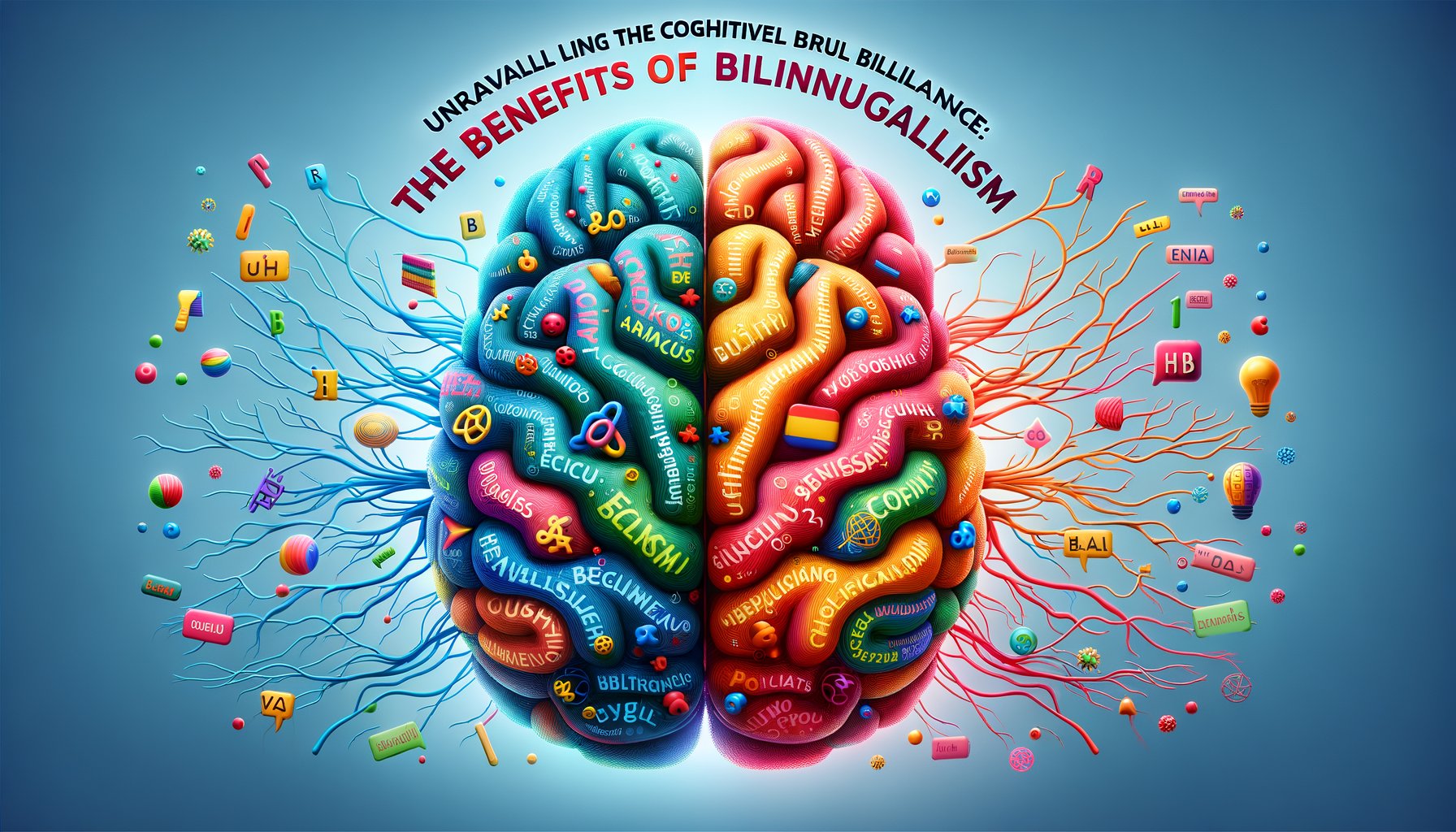Physical Address
304 North Cardinal St.
Dorchester Center, MA 02124
Physical Address
304 North Cardinal St.
Dorchester Center, MA 02124

Salut, Hola, Hello, Ni Hao – no matter how you say it, the simple act of greeting someone in their native language opens a world of connection and understanding. But did you know that being bilingual or multilingual can also provide a treasure trove of cognitive benefits? Yes, my dear readers, speaking more than one language is like doing an intensive workout for your brain with each conversation!
Bilingualism is not merely about impressing your friends at parties or getting by on overseas trips. It’s like possessing a secret weapon that enhances numerous cognitive functions including attention, memory and problem-solving abilities. So let’s dive into this linguistic pool and explore how bilingualism can supercharge our brains.
Imagine your brain as a bustling city with various districts representing different cognitive functions. Just as city dwellers travel between districts for work or leisure, our thoughts navigate through these neural networks. When we learn and use multiple languages, it’s akin to constructing high-speed railways between these districts – improving connectivity and efficiency.
Research has shown that bilingual individuals have denser grey matter in areas responsible for attention and executive function. This is because juggling two languages requires constant decision-making (which language to speak) and inhibition (suppressing the non-required language). Essentially, every bilingual conversation is a mini brain workout!
Ever tried listening to two conversations at once? For monolinguals this might seem like an impossible feat but for bilinguals it’s just another day at the office! Bilingual people are adept at selective attention – focusing on relevant information while ignoring distractions.
This skill comes from years of practice in switching between languages and tuning out the irrelevant one. It’s like having a mental filter that’s been fine-tuned for optimal performance. And this isn’t just beneficial during multilingual chatter; it can also improve focus in noisy environments or while multitasking.
If bilingualism is a workout for the brain, then memory is the muscle that gets toned most. Learning a new language involves memorising vocabulary, grammar rules and pronunciation nuances. This constant recall strengthens our memory circuits, making them more efficient and robust.
Studies have shown that bilingual individuals perform better on memory tasks compared to their monolingual counterparts. They also tend to have a larger hippocampus – the brain’s memory hub – indicating more capacity for storing and retrieving information.
Bilinguals are natural problem solvers as they constantly decipher meaning based on context, tone and body language. This skill translates into enhanced problem-solving abilities in other areas too.
The cognitive flexibility gained from managing multiple languages enables bilinguals to think outside the box and come up with creative solutions. So next time you’re stuck on a tricky puzzle, try thinking about it in another language!
Perhaps one of the most significant benefits of bilingualism is its protective effect against cognitive decline. Several studies have found that speaking two or more languages can delay the onset of Alzheimer’s disease and dementia by 4-5 years.
This doesn’t mean bilingualism prevents these conditions but it does suggest that regular use of multiple languages keeps our brains healthier for longer. Think of it as an investment in your future cognitive health!
Becoming bilingual or multilingual is a journey of lifelong learning and cognitive enhancement. It’s a gift that keeps on giving, from improved attention and memory to superior problem-solving skills and delayed onset of dementia.
So whether you’re already bilingual or considering learning a new language, remember: each word you learn is another weight lifted in your mental gym. So keep exercising those brain muscles and enjoy the cognitive rewards that come with bilingualism!
And if you are monolingual, don’t fret! It’s never too late to start learning a new language. After all, who wouldn’t want their brain to be a well-oiled cognitive machine?
Remember, every ‘Bonjour’, ‘Guten Tag’ or ‘Buongiorno’ is not just a phrase; it’s an opportunity to enhance your mind. So let’s embrace the beauty of languages and unlock our cognitive potential together!